Leadership Skills
Growthspace has identified leadership skills as the top soft skill for successful employees. In view of the importance of leadership skills, L&D departments should implement programs to develop this area as a means of ensuring competitiveness and cultivating productivity.
What Are Leadership Skills?
Leadership skills in the modern workplace are the abilities that allow a person to guide, encourage, and educate other employees in a way that promotes success.
Who Can Be a Leader?
Historically, a leader was someone who had authority because of their position within a company, also known as positional or formal leadership. This idea developed during times when a workforce was class-based and, due to a lack of educational opportunities, upward mobility was limited.
Before the Industrial Revolution, “leaders” were often from the economic upper classes, while employees were poor. They could not advance because they could not afford the required education and were often not accepted by the managerial class in the first place.
However, industrialization changed this. As those operating the factory began to build the knowledge and responsibility levels crucial to the organization, they took on roles that were just as essential as their managers’. In this sense, and as the knowledge-based economy increased in importance, it became obvious that a leader is not always a manager, or vice versa.
Today, and in light of ideas such as the “Growth Mindset”, a leader can be considered as someone who motivates, provides advice to, or controls others – even without an official leadership position. This kind of informal leader can create success for themselves and other employees. In turn, leadership skills are the abilities that enable such people to be as effective as possible.
A company cannot succeed without the input and effort of employees who take initiative, help each other, and solve problems on a daily basis. According to BambooHR, for example, three of the top ten reasons for employees to quit a job are connected to an absence of leadership – bad management, burnout, and lack of recognition. On the other hand, good leadership can result in a significant profit increase. For this reason, leadership training should be provided to all employees who have the aptitude.
Types of Leadership Skills
Many skills are associated with leadership, and they change over time. There has been growing recognition of soft skills as being at least as vital to proper leadership as hard skills were once regarded. Within the category of “soft skills”, there are many elements that are crucial for a successful leader.
Keep in mind as well that there are different ways to categorize leaders, including:
- Experienced vs. new
- Technical vs. employee-focused
- Positional vs. “born leaders”
- According to style, for instance, democratic vs. visionary
These factors should be taken into account when developing these essential skills. For example, somebody with democratic leadership qualities will benefit from leadership training in problem solving, active listening, and group communication. The best way to ensure optimal training according to different leadership categories is a personalized professional development initiative.
Today’s Top Leadership Skills
Certain types of leadership skills are in high demand. According to the International Institute for Management Development, the top five most valuable leadership skills today are:
- Relationship Building
Making connections is half art and half science. Many top leaders have a level of charisma and relatability that enables them to connect with almost anybody. That’s an art. But for those of us who are a bit soft-spoken or introverted, all is not lost. The trick is to understand how you, your skills, or your organization might be of interest to somebody who can help you professionally.
That’s when the “science” kicks in. Tools like LinkedIn make it very easy to find all sorts of connections in the business world. A smart leader will then take a close look at the variables that are part of a LinkedIn profile, from education to hobbies, and use that as an introduction when they try to connect through the platform.
But that is only half the job. Following up, being persistent, and thinking of ways to support a new connection require time management, diplomacy, and creativity skills.
- Adaptability
A person in a new situation can do one of two things – change the situation, or change themselves. New leaders seldom have the power to force issues to go their way, so adapting is their only choice.
An adaptable person demonstrates certain qualities:
- “Reading the room” – Interpreting cues from other employees enables a newly promoted leader to understand exactly what the challenge is, and how others are dealing with it.
- Lack of ego – It can be tough for certain personality types to be followers, even if it’s only temporary. But, before a new leader can fit into a new situation, they need to accept that it’s time to step out of their comfort zone and just listen for a while.
- Patience – If a new leader has a plan that doesn’t work out, then it’s back to the drawing board. To some extent, the effects of these failures can be moderated by paying close attention to a plan’s progress and shifting immediately to a new idea when failure seems likely.
- Innovation
Most people are innovative, even if they don’t know it. Any time that you create a solution to a challenge, you are being innovative. The trick for leaders is to expand this ability to barriers that their team is facing.
There is a strong connection between innovation, problem solving, and creative thinking, with these last two skills being the subject of many L&D programs. But perhaps the most essential skill to produce innovation is teamwork, which is strengthened by a classic set of leadership functions:
- Orchestrating how the team cooperates
- Leveraging the individual abilities of employees
- Choosing the best ideas in a diplomatic way
Through teamwork, leaders can inspire innovation, even if they aren’t particularly creative themselves.
- Employee Motivation
This isn’t just HR’s job anymore. With engagement rates at historical lows, it’s all hands on deck. Leaders play an essential part when it comes to motivation because, as mentioned above, a true leader takes initiative regardless of their official position. This includes supporting, advising, and befriending coworkers. Additionally, direct managers are absolutely vital for motivating employees because they are the entity in an organization that works most closely with general employees.
- Decision-Making
Another area where true leadership skills are crucial is during the decision-making process. This is an area where personal bias, especially when it is unconscious, can have a devastating effect. Good leaders practice empathy with intelligence, where they give equal weight to the choices on the table and choose what is best for the organization, but still make all contributors feel valued.
Universal Leadership Skills
The demand for professional abilities in the workplace changes over time. The exact elements of interpersonal skills, self-management, and technical knowledge that are seen as essential vary from year to year. But there is a certain core of abilities connected to people management that should, to some extent, always be part of any leadership development program. These are:
- Self-Awareness
Leaders who are self-aware understand how their personality traits and habits affect interactions with employees at all levels of the organization. Leaders who are self-aware notice how their actions and directions are perceived and constantly aim to improve. In addition, a manager with high self-awareness knows that their leadership skill set is not complete or perfect, and they are open to relying on others to fill in the gaps.
- Persuasion
Even for an employee who is not in sales, persuasion is a key ability for leaders at any level. This fits with the idea of actual vs. positional leaders. Convincing subordinates, peers, and superiors to take a certain course of action based on your recommendation is showing leadership. Except for a person in a managerial role, persuasion is critical when dealing with employees when you have no authority. Instead, you need to depend on the strength of your argument, interpersonal skills, and other abilities. Upon promotion to manager, employees with persuasive skills don’t need to rely on pressure, authority, or other negative tactics to lead others.
- A Growth Mindset (AKA Learning Agility)
Nobody is a perfect leader, but there are successful ones who manage to (at least) balance their weaknesses with strengths through skill development. Building the skills that you need to go from average to successful demands constant learning. This ties in with the Growth Mindset, which states that the only barrier to achievement is the will to learn.
Similarly, the workplace is constantly changing, and so are the needs of employees. Translating those changes into L&D programs allows HR teams and managers to keep up. Phenomena like Quiet Quitting show that younger generations want different types of motivation and leadership than older employees. It’s up to an effective leader to learn about these trends and how best to deal with them.
- Comprehensive Problem-Solving
Although newly promoted leaders must deal with disadvantages, they also face many upsides. For instance, they can take advantage of their ability to use a different perspective from existing employees when examining problems.
Chances are that some of the challenges that they will encounter when they are new have been around for a while. In these cases, many recently promoted leaders would ask their peers for advice or find the quickest route around the problem.
However, a new point of view can provide opportunities. By relying on creative skills or experience from previous jobs, a new leader can derive solutions to challenges that help the entire operation. (Note that convincing others of a new approach depends on persuasive skills, as described above.) This enables them to quickly prove their value to the organization in addition to acclimatizing more rapidly.
- Empathy
DEIB is important to many organizations; the “B” stands for belonging. A key component of making somebody feel like they belong, which is an important leadership task, is to empathize with them.
Beyond that, however, empathy is an essential tool. To understand someone’s motivations, a leader should be able to see things from their perspective. This is not just a way of making someone feel good. In dealing with situations where you face resistance, you can gain significant insights from figuring out the reasons behind an opponent’s actions.
Empathy is closely related to other valuable leadership skills such as adaptability, persuasion, and self-awareness.
- Critical Thinking
Especially when they are in charge of employees, leaders face a constant need to filter ideas, evaluate reports, and troubleshoot problems. They might also be in charge of strategy and hiring employees for their team. In all of these situations, good critical thinking skills allow leaders to find flaws and identify optimal solutions while ignoring personal bias and delaying judgment until they have listened to all sides of an issue.
Specialized Leadership Skills
There are myriad ways of describing what a leader is. Along with this comes the fact that every sort of leadership can have its own skill niches. For example, a technical leader (of the kind who needs to manage engineers, programmers, etc.) must be an expert in all of the quantitative skills connected to their role.
One of the most common areas of specialized skill is for newly promoted leaders. They face a different set of challenges compared to experienced leaders for various reasons:
- A need to acclimatize to their new position
- Getting accustomed to leading instead of being led
- Dealing with expectations from veteran employees and managers
New leaders require their own unique type of skill training. According to the Professional and Executive Development department at Harvard University, there are four specific areas for recently promoted leaders to focus on:
- Communication
Communication skills for leaders involve a wide range of activities, from creating employee schedules to giving an inspiring speech. It is one of the most difficult skills to acquire because it has many dimensions that include spoken, written, and non-verbal communication. Given the universal fact that there are no perfect communicators, every leader can benefit from communication skill training of some sort.
- Strategic Thinking
Strategic thinking in a business environment is the interpretation of current activities, competition, market forces, organizational changes, and product trends as a way of setting future objectives. A leader with strategic thinking skills will stay aware of the ‘big picture’ in their day-to-day activities. For example, a manager who sees the onset of a global pandemic will understand that there will be supply chain disruptions and make arrangements accordingly.
- Emotional Intelligence
Emotions are a two-way street in real life, but can be much more complicated in the workplace. Leaders need to be aware of their own emotions when they influence people while keeping in mind that employees have a personal stake in their efforts as well. However, given that it’s a professional environment, feelings in the workplace need to be restrained. For leaders, this relates to keeping empathy for employees on an equal plane with the needs of the company.
- Change Management
A leader who is responsible for change management must be able to develop a systematic approach for a transition of an organization’s processes, technologies, and/or goals. Soft skills are essential here, as explaining the ramifications of change to employees–and obtaining their support–is a central objective of organizational change.
Why Are Strong Leadership Skills Important?
No company can succeed without effective leadership. As an added perk, building the skills of those in positions of responsibility can have many benefits:
Improved Employee Engagement
A potential barrier to effective leadership is the lack of relevant skills. Conversely, a leader who is supported by extensive skills will feel more competent and therefore more enthusiastic. A trained leader also understands that the organization is investing both in the success of operations and of the leader.
Efficient Succession
When current leaders move on to other positions or leave the organization, it is crucial for their replacement to have the right skills. However, it is often the case that a new manager will lack both knowledge of their specific role and basic leadership skills. Leadership skill development will minimize disruption as the new manager becomes acclimatized.
Strategic Ability
Although a basic task of any manager is to enable both the creation and reinforcement of strategy, leadership skills have these activities as a focus. Strategic thinking and change management skills are particularly valuable for the implementation of far-reaching plans.
Proven Results
Of course, the effectiveness of a leadership skills program depends on the organization. Surveys show that leadership development programs generally result in a greater number of more effective leaders. For instance, in a survey by the Center for Creative Leadership, it was demonstrated that such programs result in a 60% improvement for both engagement and employee development.
Beyond Leadership Skills
“Leadership” sounds like an exciting idea for many employees. But, in reality, it can be a tough job. According to Gartner, almost 50% of managers are at risk of failure. And a prime reason for this is due to a lack of managerial and leadership training.
HR can go a long way towards resolving this by educating upper management about the critical nature of L&D programs for leadership skills. But not just any L&D programs – personalization is vital, as explained below.
However, there are other factors that can also support new leaders during their successful integration. Backed by a strong organizational culture, HR should ensure that recently-promoted leaders are influenced by:
- Strong values. Executive leaders must set examples for behavior. For instance, if a leader is expected to show empathy and self-awareness, then upper management needs to consistently demonstrate this attitude. In contrast, if a new leader sees that executives have poor values, then it will be assumed that such behavior is how you get to the top in that organization.
- “Big picture” awareness. When any employee understands how their work fits into operations in general, they develop a sense of purpose, which is vital for employee engagement. But for leaders, this information is essential. It permits them to make important decisions that would be impossible without knowing the purpose of whatever task they are working on.
- Continuous education. As noted above, any list of valuable leadership skills would be changing constantly. In addition, the sheer number of leadership skills means that it would take a person years to develop them. To address this challenge, companies should implement Continuing Professional Development programs.
Creating Leadership Training Programs
Clearly, there is a massive number of skills related to leadership. But it’s not usually necessary to provide training for every leader in every skill. Born leaders act that way because they have a set of natural qualities that empower them. Yet it is certain that they lack abilities in at least some of the areas mentioned.
Leaders can be created. Almost every employee has skills that allow them to be turned into leaders. For instance, an expert in a technical area has knowledge that can be transferred to other employees. If they lack communication skills, then a leadership program (among other L&D options) might be used to turn them into a mentor.
The essential aspect in both of these situations is for HR to understand exactly what leadership skills the employee already possesses, what kind of leader they should be (if at all), and what L&D courses can be used to fill in the gap. The most common tool for this task is a skills gap analysis combined with a career development plan. Once the analysis process is complete, HR will have a list of upskilling needs for each employee. But that’s not enough.
Growthspace: Personalized Leadership L&D
Organizations that want to develop the leadership potential of employees at multiple levels need a way to match individual training requirements with experts in those specific areas. The answer lies in the Growthspace precision skill development platform. It delivers highly scalable L&D programs through a technology that connects leaders with trainers, coaches, and mentors of any specialty.
Only through personalized leadership programs can a leader gain the skills that are specific to them, while avoiding wasting their time on courses for abilities that they already have. Considering the heavy workload of most managers, optimizing their learning time with the Growthspace platform is a sure recipe for building skills in the most efficient way.















